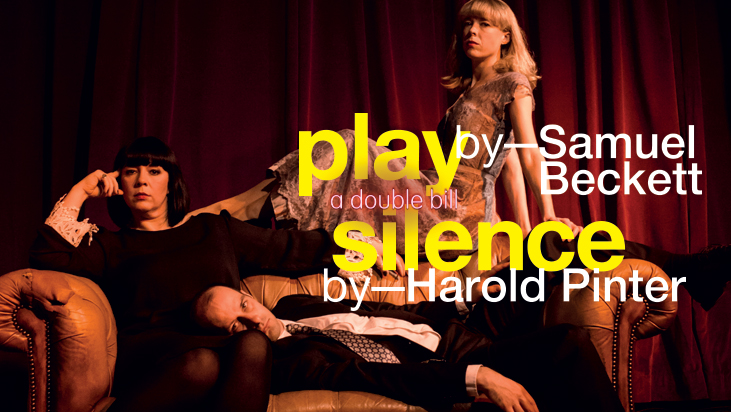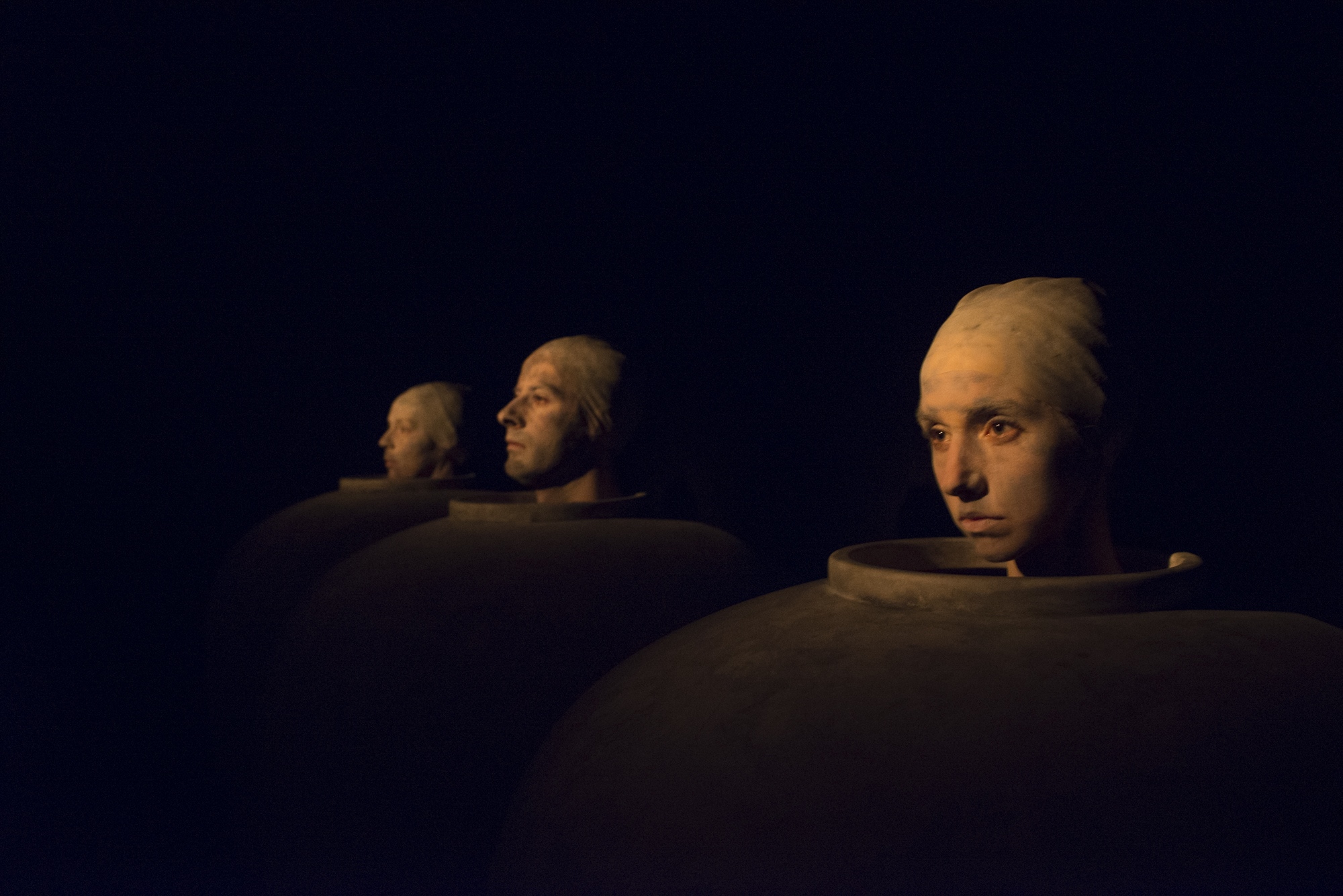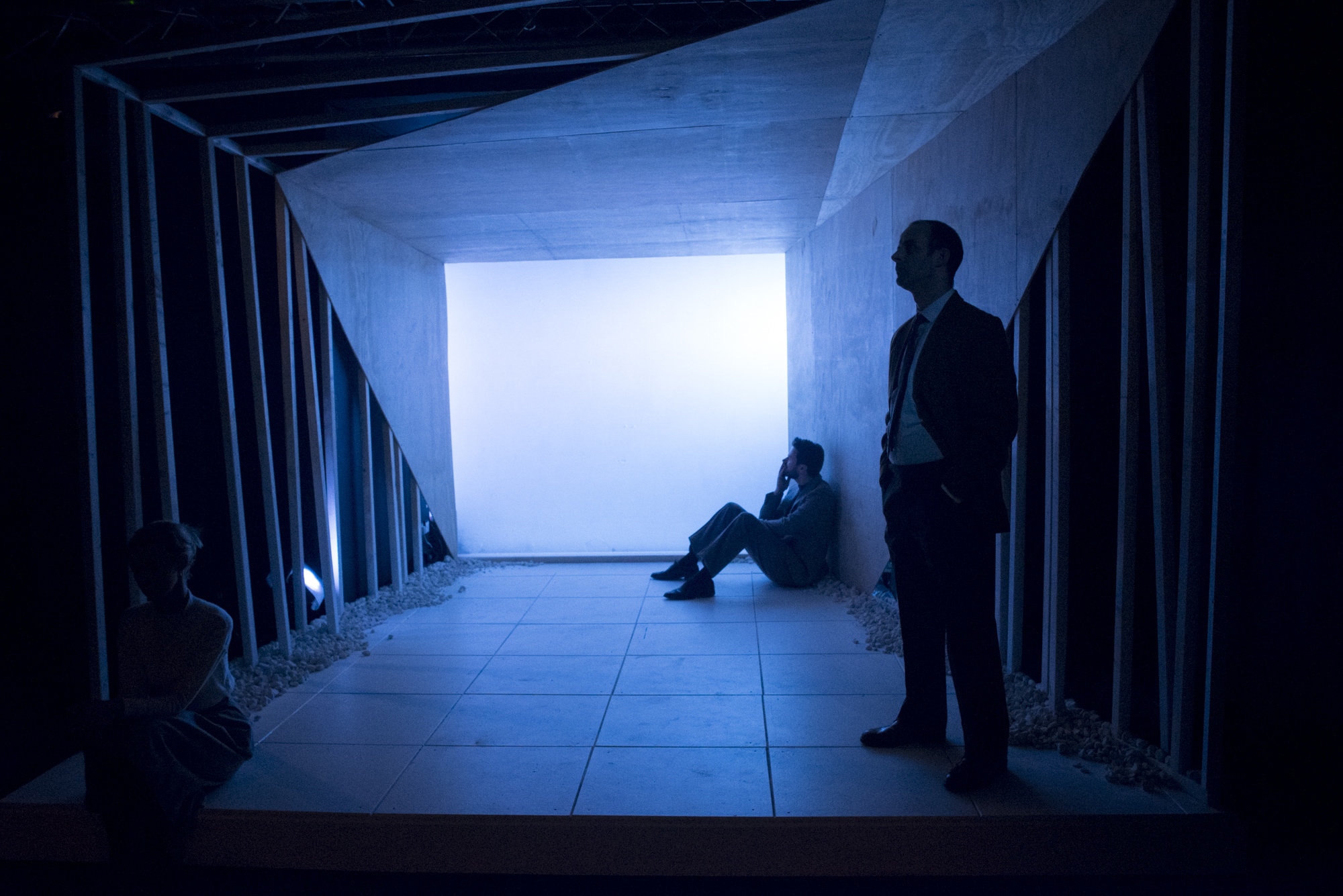
It’s not often you get to say that you’ve seen both a Beckett and a Pinter play in one night, in an hour in fact. But The Other Room at Porter’s, yet again, delivers for it’s audiences a night of theatre that affects you and lets you indulge in it’s rarity.
‘Play’ begins, with whispers and hiccups from the faces in the glittering urns, designed wonderfully by (Amy Jane Cook). With the yellowish glow of rapid spotlights we hear the intricate thoughts of the man, the mistress and the wife. The hiccups, the pauses the whispers and the humour all a collection of brutally honest thoughts, each monologue justified by the other person’s words. On the left hand side we have W2, the wife of the man, played by Victoria John and next to her we have the Man in the middle (quite literally) played by Matthew Bulgo and to his right, W1, Peta Cornish, playing the mistress.

We race through the interior monologues, each contribution giving more than just verbal circumstance. We see what one could believe to be martial unhappiness mixed with a sense of neglect, regret and direct bitterness cleverly composed using just a few base notes and the odd pause, disguised as a ‘pardon’. The repetition in the piece doesn’t annoy, it’s evokes a different sense, a sense of memory. You feel comfortable enough to react but the lack of an entrance or exit reminds you that this is not a place to get comfortable in. To be alive in a funeral urn and only allowed to speak when the moonlight-like spotlight chooses you, in a place where you can’t imagine daylight- who knew it could be so comic?
After a short interval, one I wish hadn’t had to have taken place, we move on to ‘Silence’. A play that marked a change for Pinter, and certainly marks a change in this double bill. The actors are present on a well lit stage, looking lost in thought in a simple set of wooden side walls and a blank dim square at the back of the stage, representing a window.

Like ‘Play’, we are met by three characters, each sharing the space and look of nostalgia, and then Rumsey speaks. The interior monologue begins, this time casually, with a hopeless honesty exploring ‘the fleeting nature of love’ and the isolating recalling from what I gather to be different periods of time. Rumsey, played beautifully by Matthew Bulgo, poetically recalls his thoughts and ends as he begins, lonely and living from his past. Bulgo’s delivery of Rumsey’s first line is wonderfully ideal. We also meet The gentle Ellen played by Peta Cornish, who is this time, the lady in the middle. The middle of what is something that’s not completely clear from the text but as the monologues unfold we see the pasts of both these characters merge. We also meet Bates played by Neal McWilliams, a man who doesn’t share Rumsey’s soft tones but does share his interest in Ellen. He is the man Ellen had to choose after being rejected by Rumsey and ultimately, she loses loses him too, this time by choice, and they all have to live from within their memories and wonder what could’ve been, had life played out their ideal.
Both plays speak volumes and allow us as the audience to make sense of them, if we so wish. The directors Kate Wasserberg (Play) and Titas Halder (Silence), along with the entire cast and crew deserve multiple applause for attacking two brilliant plays and creating another fantastic night of insightful theatre.
Play/Silence runs at The Other Room at Porter’s until February 5th. It’s an unmissable double bill of the exact type of theatre we need. Go see, you won’t regret it!
Photographic credit Pallasca Photography
[vimeo 152270795 w=500 h=281]
<p><a href=”https://vimeo.com/152270795″>Play/Silence – a Beckett/Pinter double bill</a> from <a href=”https://vimeo.com/tudleyjames”>TudorFilms</a> on <a href=”https://vimeo.com”>Vimeo</a>.</p>
Get The Chance has a firm but friendly comments policy.
